 UTILITIES UTILITIES |
 Undergoing Privatization Undergoing Privatization |
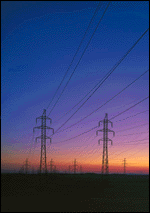
"Privatization" is a word of great importance in Slovakia. Providing the basis for an economic transition from a centrally planned to a market economy, the transfer of state-owned companies into private hands influences the whole country's economy and policy. After the year 1989, when the government changed, the main goal was to change the ways things were owned within the country and to provide space for the private sector. "I came to the NPF in 1994 at the crucial time, when we were entering a period of selling the key companies and flagships of the economy. It was a hectic, and, I suppose, unrepeatable period in the history of the Slovak Republic," says Mrs. Anna Bubenikova, Head of the Property Rights Enforcement Department at the National Property Fund of Slovakia and Head of the Supervisory Board of VSZ Kosice .

More than 85 % of Slovakia's GDP comes from the private sector today, as compared to the 1990s when 100 % of GDP accumulated was within the public sphere.
The Slovak privatization process remains slow and full of obstacles. Up until 1998, almost all non-strategic smaller companies were privatized. However, this process was not very transparent. Apart from the voucher privatization that was stopped at the third round, many large Slovak companies were sold through direct sale for a low price to domestic owners. This resulted in a series of bankruptcies, also known as "Tunneling", which became a common procedure consisting of taking assets from cheaply obtained companies.
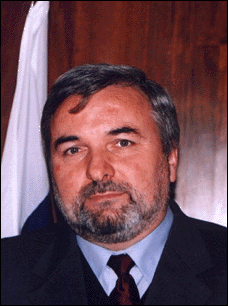
State-owned banks supported the new owners indirectly through non-profitable loans, and any further restructuring of their portfolios cost as much as SKK 105 billion (see banking section for details).
After 1998, the privatization process continued, mainly targeting the larger, strategic companies, primarily in the utility sector. Although some "Slovak specifics" could be found in this period as well, most of the past obscurities were amended. "Inside the economic sector, we mainly focused on restructuring the energy sector and we prepared the privatization of natural monopolies," says Mr. Lubomir Harach, Minister of Economy.
Power generation belongs to strategic industries in Slovakia. According to Slovak law, the state has to keep a majority of 51% in all strategic companies. Companies that are named in the Act on Strategic Companies are Slovenske Elektrarne (generator of electric energy), SEPS (transmission grid operator), ZSE, SSE and VSE (distributors of electric energy), SPP (gas transportation and distribution), Transpetrol (oil transportation), Slovak Telecom, Slovak Railways, Slovak Post and some forestry companies. The National Property Fund, the state privatization agency, is responsible for the privatization process, together with the Slovak Ministry for Privatization. In August 2001, the Regulatory Office for Networks was established as an independent regulator for the whole energy and telecommunications sector.
 Power System Power System |
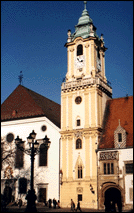
The generation, transmission and distribution of electric energy are subject to deregulation, liberalization and privatization in the whole Europe. Opening the energy market and separating the production, transmission and distribution chains from one other is the key principle for reform. State-orchestrated deregulation, also requested by the EU, was thoughtfully prepared and successfully introduced in Slovakia. In late 2001, Slovakia became one of the first post-Communist countries to close the energy chapter of the Acquis Communautaire.
The transmission network, represented by a company called SEPS, remained firmly in the hands of the state, while the generation and distribution of energy are now operated in a competitive environment. "Within 8 or 9 years we can privatize the transmission system as well," adds Mr. Harach, Minister of Economy.
Significant debt resulting from large investments for developing generating capacities characterizes the Slovak energy market. The sector is also influenced by a significant amount of stranded costs and deformed prices stemming from late liberalization measures.
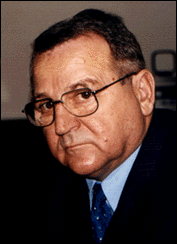 | Slovenske Elektrarne (SE - Slovak Electric) is the main Slovak power producer representing 86 % of the total energy consumed. The company was transformed into a joint stock company and by the end of 2003 will be the last Slovak utility to be privatized. "We are quite glad to privatize the company and we expect foreign investors with know-how and the financial capacity to cover up some of our debts," stresses Ing. Vincent Pillar, General Manager of SE . As a natural monopoly, it operates two Slovak nuclear power stations and some 34 hydroelectric power plants, including the Gabcikovo Water Dam on Slovak-Hungarian Borders. In terms of assets, SE is the largest Slovak company. SE supplies electricity to the regional electricity providers (REPs) and to several large direct industrial customers.

There are three regional power distribution companies in Slovakia - Eastern Slovak Energetics (Vychodoslovenska energetika - VSE), Central Slovak Energetics (Stredoslovenska energetika - SSE) and Western Slovak Energetics (Zapadoslovenska energetika - ZSE).
Transformed into joint-stock companies at the end of 2001, their 49 % stakes with managing rights will be sold to foreign investors in the first eight months of 2002. "In the next five years, after the full liberalization of the market, we would like to remain the best power distribution company in Slovakia," says Mr. Andrej Devecka, Chairman of the Board of Directors and General Director of ZSE.
Vychodoslovenska energetika (VSE) is a dominant electric power distributor in the regions of Kosice and Presov. The population of this territory is 1,554,000 and the supply area covers 15,746 km2. Apart from the Slovak Republic, VSE has started some activities in neighboring Ukrainian market in 2001.
Zapadoslovenska energetika (ZSE) is a power distribution company with activities in the Capital Bratislava and in Western Slovakia, ensuring delivery of electric and heat energy for more than one million consumers.
 Gas Production and Distribution Gas Production and Distribution |
Unlike the electric energy sector, a single corporation dominates gas distribution. The Slovak Gas Utility (Slovensky Plynarensky Priemysel - SPP) is the state monopoly for the distribution and transmission of gas. SPP also operates the transit pipeline network, which carries an estimated 80 % of Russian natural gas exports from the border with Ukraine to Central, Western and Southern regions in Europe. This makes SPP the key transporter of Russian natural gas to Western European clients.
Thanks to Slovakia's strategic position in the very center of Europe as well as the good localization of its transit pipeline network, SPP is the most valuable Slovak company. On one hand, it is the major link between huge gas resources in Russia and the world's most important gas market in Western Europe. Courtesy of this, almost all important gas players in the world are interested in buying the 49 % stake in SPP. "If you look on the map globally, it is said that all the roads lead to Rome and all the important gas routes lead through Slovakia," says Mr. Miroslav Lapunik, Chairman of the Board and General Director of SPP.
Despite the efforts of some Slovak left winged parties to hinder the privatization process of SPP, which has also acclaimed to be the greatest privatization deal in Central and Eastern Europe it should be completed by the first half of 2002.
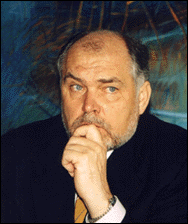
Courtesy of this, almost all important gas players in the world are interested in buying the 49 % stake in SPP. "If you look on the map globally, it is said that all the roads lead to Rome and all the important gas routes lead through Slovakia," says Mr. Miroslav Lapunik, Chairman of the Board and General Director of SPP.
Despite the efforts of some Slovak left winged parties to hinder the privatization process of SPP, which has also acclaimed to be the greatest privatization deal in Central and Eastern Europe it should be completed by the first half of 2002.
SPP's economic activity was affected by the significant growth in the purchasing prices of gas, while sale prices were regulated by the state and do not correspond with this particular trend. However, this influence is counterbalanced by a stable income derived from transit, and individual levies to the state budget that has been increasing steadily every year.
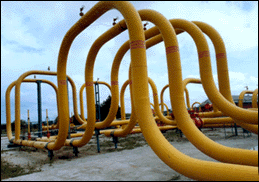
 Oil Transportation Oil Transportation |
The Slovak pipeline system has a single operator
- Transpetrol, providing services for petroleum
transfer and storage. The company transports crude
oil from the Russian Federation through the Druzba
pipeline. Slovakia's crude-oil pipeline system is
also connected to the Adria pipeline coming from
Africa via Italy. The Slovnaft refinery is the most
important domestic client of Transpetrol. A minority
stake with significant managing rights in Transpetrol
was the subject of privatization entering 2002.
A Russian company YUKOS, which is one of Transpetrol's
largest Russian suppliers won the tender by offering
USD 74 million for the stake. |

